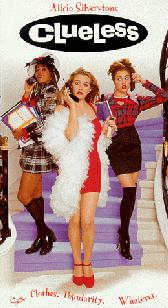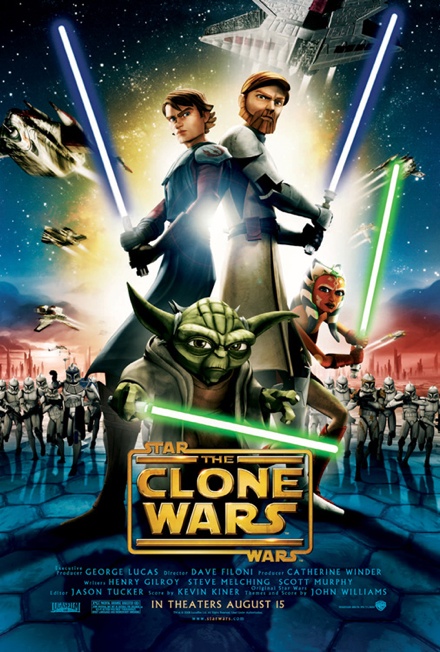 “Lakeview Terrace” is the worst kind of bad movie. It is the sort of bad that makes you angry because it dangles the possibility of a truly engaging movie-going experience and then pulls it away at the last second.
“Lakeview Terrace” is the worst kind of bad movie. It is the sort of bad that makes you angry because it dangles the possibility of a truly engaging movie-going experience and then pulls it away at the last second.There’s something far more frustrating about watching a movie with a potential for greatness, however buried it may be, than watching a movie that is straight-up awful. If a movie has terrible acting, writing, directing and no chance of ever approximating something of quality, it is easier to shrug off.
“Lakeview Terrace” was directed by Neil LaBute, a talented filmmaker and playwright who has lost his way, at least in the world of cinema. Following the laughable remake of “The Wicker Man,” this is LaBute’s second Hollywood film, and the edge he showed in earlier films such as “In the Company of Men,” “Your Friends and Neighbors” and “The Shape of the Things” is nowhere to be seen.
It is easy to see why LaBute, an incendiary voice that pushes audiences’ views on society, was drawn to “Lakeview Terrace.” The film focuses on an interracial couple (Patrick Wilson, “Hard Candy” and Kerry Washington, “I Think I Love My Wife”) that moves into a Los Angeles suburban community much to the dismay of their neighbor (Samuel L. Jackson), a widowed black cop attempting to raise two children.
LaBute could’ve made provocative and challenging statements about racism with this premise, but the problem is he didn’t write it. The script is by David Loughery and Howard Korder. Glancing at their resumes, Loughery is the heavy hitter with such shining credits as the 1993 remake of “The Three Musketeers” and “Star Trek V: The Final Frontier.”
Loughery and Korder’s script thinks it is mature and serious because it is dealing with racism, but they don’t really have anything to say on the subject. The depth of their social critique is that being in an interracial relationship is difficult and that racism can end in violence. Both of these statements are true, but the screenplay only addresses these issues as devices for the plot with Jackson going to increasingly elaborate and dangerous extremes to force the couple out.
The movie is heavy-handed and obvious where it should by nuanced and complex. There’s a scene in which a drug dealer calls Jackson out for his racism that is insulting to the audience. A little subtleness would’ve gone a long way.
As if being cliché and familiar wasn’t bad enough, the film also throws pretentious into the mix. Throughout the film, the fires in California are referenced and wouldn’t you know that when things finally come to blows between Wilson and Jackson that the fires are right on top of Lakeview Terrace? You can almost hear the writers saying: “The fire represents the racial tensions, get it, aren’t we clever?” This attempt at a metaphor is more eye-rolling than profound.
On a base level it may sound as if there could be some cheap thrills in the battle of wills between the couple and Jackson, but the film feels like a wait for the inevitable final confrontation than a real tension-filled thriller. There is no suspense. It is clear exactly where this is going.
Jackson, who, granted, is good at being menacing, spends too much of the film glaring and glowering. Wilson and Washington are fine, but their performances are undermined by what the script forces them to say and do.
The film does have one great scene, in which Jackson delivers a monologue about how his wife died that reveals the root of his racism. It is the first time the film is truly compelling, but unfortunately it is at least an hour into the film before you get it. It is shortly after that the film goes completely off the rails into utter stupidity.
 Leave it to the Coen Brothers, filmmakers who refuse to be pigeonholed, to follow up their Academy Award winning thriller “No Country for Old Men” with “Burn After Reading,” a goofy espionage farce.
Leave it to the Coen Brothers, filmmakers who refuse to be pigeonholed, to follow up their Academy Award winning thriller “No Country for Old Men” with “Burn After Reading,” a goofy espionage farce. Foreign directors remaking their own film in Hollywood is an exercise in futility. It is a feeble attempt to get a wider audience by playing off the cynical assumption that most Americans are too lazy to watch a subtitled film, even an action based one. They’re probably right.
Foreign directors remaking their own film in Hollywood is an exercise in futility. It is a feeble attempt to get a wider audience by playing off the cynical assumption that most Americans are too lazy to watch a subtitled film, even an action based one. They’re probably right. “American Graffiti” (1973)
“American Graffiti” (1973) “Rock ‘n’ Roll High School” (1979)
“Rock ‘n’ Roll High School” (1979) “Fast Times at Ridgemont High” (1982)
“Fast Times at Ridgemont High” (1982) “The Breakfast Club” (1985)
“The Breakfast Club” (1985) “Ferris Buller's Day Off” (1986)
“Ferris Buller's Day Off” (1986) “Say Anything…” (1989)
“Say Anything…” (1989) “Clueless” (1995)
“Clueless” (1995) “American Pie” (1999)
“American Pie” (1999) “Mean Girls” (2004)
“Mean Girls” (2004) “Superbad” (2007)
“Superbad” (2007) When the original “Star Wars” came out in 1977, people lined up around the block to see it again and again. Oh, how things have changed. A theatrical release of a “Star Wars” film use to be an event, but the cheapy computer animated feature “Star Wars: The Clone Wars” is nothing more than a shameless cash in.
When the original “Star Wars” came out in 1977, people lined up around the block to see it again and again. Oh, how things have changed. A theatrical release of a “Star Wars” film use to be an event, but the cheapy computer animated feature “Star Wars: The Clone Wars” is nothing more than a shameless cash in.